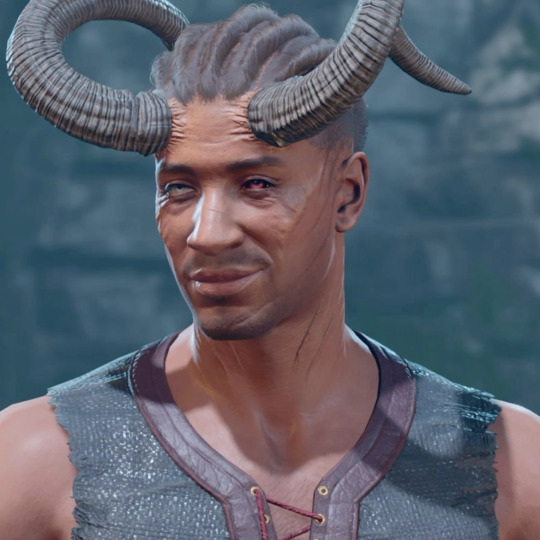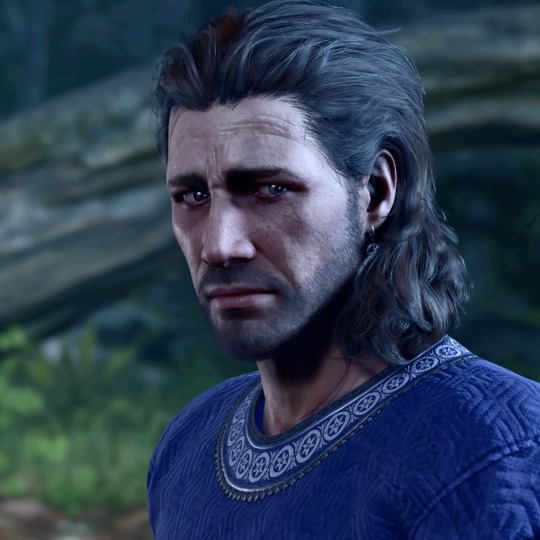#Also I've seen takes on 'is Gale morally supposed to have blown himself up' when the narrative doesn't actually support that
Explore tagged Tumblr posts
Text


SOME ILLEGIBLE RAMBLES AND REFLECTIONS: GALE AND WYLL AS FORSAKEN CHILDREN
Gale and Wyll share a rather unique element of abuse that I haven't seen discussed yet. Someone's gotta talk about it, might as well be me lol.
I would argue that both Wyll and Gale are being pressured to destroy themselves at the altar of certainty. Wyll pacted with Mizora in the first place because when the cult of Tiamat threatened Baldur's Gate, he was told that destruction and death were inevitable outcomes unless he agreed. Mizora was exploiting fear, self-doubt, and a double-standard in self-worth. Even in the Forgotten Realms I'm pretty sure the future isn't set in stone. There was a definite chance destruction and death could occur due to the cult of Tiamat though, and Wyll was willing to enter an incredibly abusive pact to avoid that possibility. His alternative was to accept that life is struggle and uncertainty by nature, and he does not have total control over outcomes. The idea that his best might not be good enough and others might come to harm was enough to justify self-destruction in Wyll's own mind back then. In scenarios where Wyll ends his pact, it's narratively poetic that Mizora poses the same question. This is a way for audiences to examine whether or not Wyll has changed over the course of his pact, whether he looks at himself and life the way he did originally. Mizora tells him with the same false-pretense of certainty that if he doesn't use her power then his father will die and it will be Wyll's fault for not sacrificing himself in Ulder's name. Having Wyll break the pact feels appropriate to me. Whether he succeeds or fails in saving Ulder, it matters that he makes the attempt as a free man without any guaranteed outcome. If he succeeds, it's an especially good way to spit in the face of Mizora's manipulation. She never knew for sure what tomorrow would bring. She had no right to pretend that she did. Mystra does a similar thing to Gale. Gale might succeed in destroying the Absolute without detonating the orb. He might succeed in retrieving the Crown of Karsus. He might not. Mystra isn't in it for mortals here either way. She wants what she wants for herself when she wants it. And while the scene before the final battle varies depending on choices, I had one where Gale basically started panicking because if he didn't use the orb and the group's efforts failed--he thought that everyone who died to the Absolute and mindflayers would be because of him. He thought it would be cowardice and selfishness not to kill himself. He could have gone up alone, detonated the orb alone, and made CERTAIN nobody died except for him. The alternative was to risk failure for the possibility that he wouldn't need to die too. Like Wyll, Gale was taught not to trust himself. Like Wyll, Gale believes his life and well-being are acceptable prices for 'the greater good'. Like Wyll, Gale is being told that the fault of everyone's suffering if he tries and fails is not the Absolute, not the Emperor, not the Dead Three--but him. His best couldn't overpower those enemies, so it's his fault for letting everyone down. It's his fault for not just killing himself. For Wyll it isn't Mizora's fault if his father dies. It isn't Gortash's faut. Blame falls on him exclusively because he wasn't ready to put himself back into the power of an abuser. The attempt to shift accountability is incredibly dishonest. Both Wyll and Gale are basically being put into the allegory of the foresaken child. For anyone who may not know it, the story goes like this.
There is a perfect, utopian city. No one suffers, no one fights, no disease ravages its streets, no hunger grips its people. And everyone not only lives in peace, but lives in the certainty that their peace will never be broken. There is, however, a price to this. For all the residents of that city to enjoy tranquility a single, innocent child must be sacrificed to endure unimaginable torture. It's because of this child's suffering that everyone else is guaranteed happiness. Is that child's life an acceptable price?
Most people would say it isn't. The allegory exists to illustrate how people might decide to give cruelty and horror a pass.
There is another saying that exists, too. "Those who would sacrifice freedom for security deserve neither." That is also what is being demanded of Wyll and Gale--their freedom, their agency, their efforts rejected as inadequate. Only guaranteed outcomes will do according to their abusers... except life has no guarantees.
I would argue Wyll and Gale are both effectively forsaken children, who are being blamed for balking when told to accept their torment for the good of everyone else. Their abusers condemn them for not treating themselves as expendable.
There's a difference between a sacrifice freely made as a last resort when all alternatives are exhausted, and someone making a sacrifice because they regard their own life as cheap or are afraid of failure as a possibility. There's also a huge difference when someone sacrifices themself as their own idea compared to being coerced or manipulated into it. And as a fun personal experience that accidentally illustrated the point. During my first complete play through, it happened that there were two characters in-range of the Netherbrain. One was Karlach, wailing on the thing until it had about twenty HP left. The other was Gale. Gale had no powerful spells left, and no scrolls left. But he had cantrips and he was in-range. The last move in that fight was Gale killing the Netherbrain with shocking grasp. Considering that Gale started the game with basically none of his archwizard spells, that Mystra had no trust in his capabilities and encouraged him to doubt his own capabilities, that Mystra wanted him to kill himself regardless of whether it was necessary simply because it was certain... having Gale win on the reaction cantrip felt like the biggest fuck you he could have given. Could not have asked for things to unfold better than that personally. In any case the idea that Wyll and Gale come to realize they're more capable than they ever gave themselves credit, that they aren't disposable, and that they aren't to blame for the bad actions of other people seems like a key lesson for both of them imo.
#wyll ravengard#gale dekarios#baldur's gate 3#baldur's gate iii#bg3#bgiii#Fwiw I don't have the best opinion on Ulder but I don't think he needs to die either#I kind of wish Wyll had more opportunity to express selfishness and have that framed as okay#Also I've seen takes on 'is Gale morally supposed to have blown himself up' when the narrative doesn't actually support that#Neither does the gameplay tbh
192 notes
·
View notes